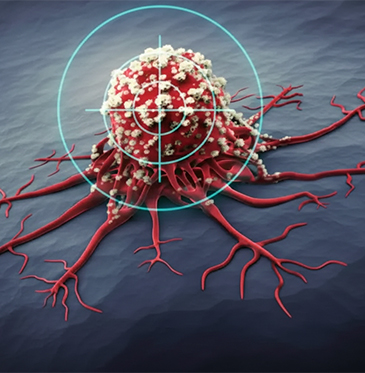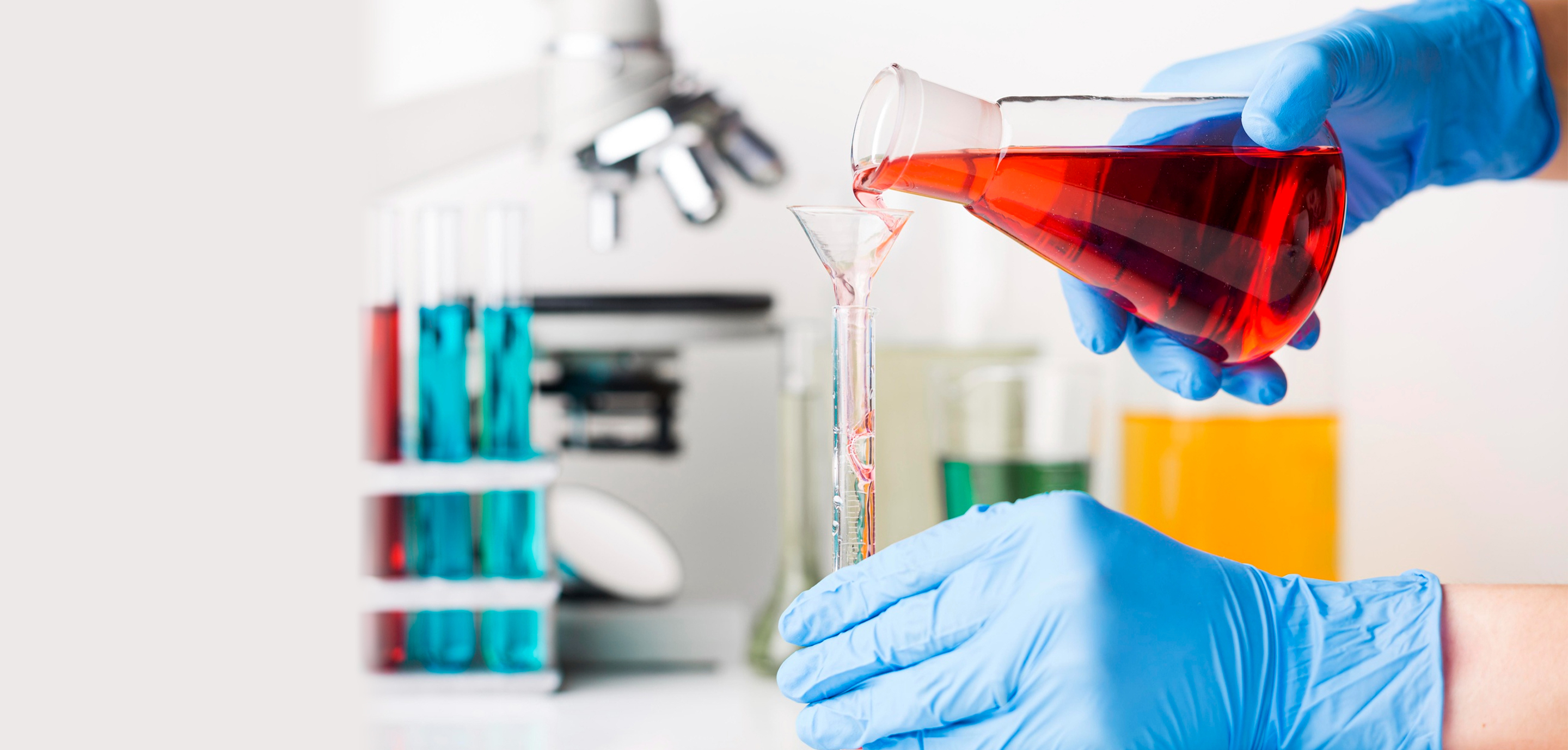
At the Bhagwan Mahaveer Cancer Hospital & Research Centre (BMCHRC), our Laboratory and Transfusion represents the forefront of compassionate cancer care. We understand that a cancer diagnosis can be overwhelming, both physically and emotionally, which is why our dedicated team is committed to providing personalized and comprehensive care to every individual who walks through our doors.
Laboratory and Transfusion Services at BMCHRC are pivotal in supporting accurate diagnoses and effective treatment plans for patients. Our state-of-the-art laboratory is equipped with advanced technology and staffed by highly skilled professionals who ensure precise and timely analysis of various laboratory tests, including blood tests, microbiological cultures, and genetic testing. Additionally, our transfusion services provide safe and reliable blood products for patients in need, adhering to strict quality control measures to minimize the risk of transfusion reactions and infections. With a commitment to excellence and patient safety, our laboratory and transfusion services play a vital role in delivering comprehensive and high-quality care to our patients, contributing to improved health outcomes and overall well-being.

BMCHRC's Clinical Biochemistry department plays a critical role in disease diagnosis and management by analyzing biochemical markers in bodily fluids. Utilizing state-of-the-art equipment and methodologies, our team of experienced biochemists and technicians conducts a wide range of tests to assess organ function, diagnose metabolic disorders, and monitor treatment responses, enabling personalized and effective patient care.
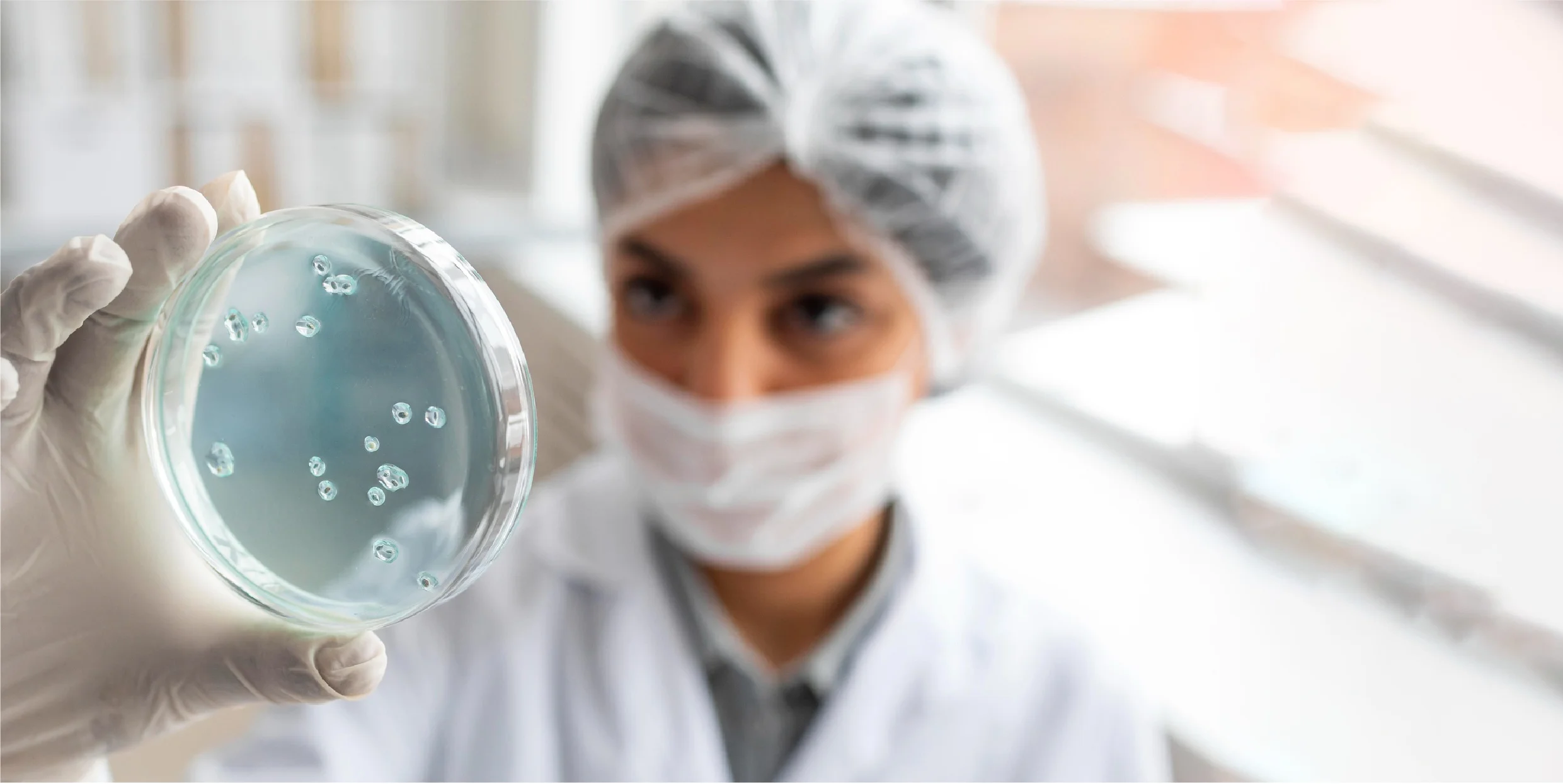
The Department of Microbiology at BMCHRC is dedicated to the diagnosis and management of infectious diseases through the identification of pathogens and antibiotic susceptibility testing. Our team of skilled microbiologists utilizes advanced techniques to isolate and characterize microorganisms, providing clinicians with crucial information for targeted antimicrobial therapy and infection control measures.

Our Transfusion Medicine Service, also known as the Blood Bank. The Hospital has its own blood bank, Department of Transfusion Medicine offers:

Hematopathology Services at BMCHRC focus on the diagnosis and management of diseases affecting the blood and bone marrow. Our team of hematopathologists specializes in the interpretation of blood smears, bone marrow aspirates, and biopsy specimens, providing accurate diagnoses for conditions such as leukemia, lymphoma, and myeloproliferative disorders.
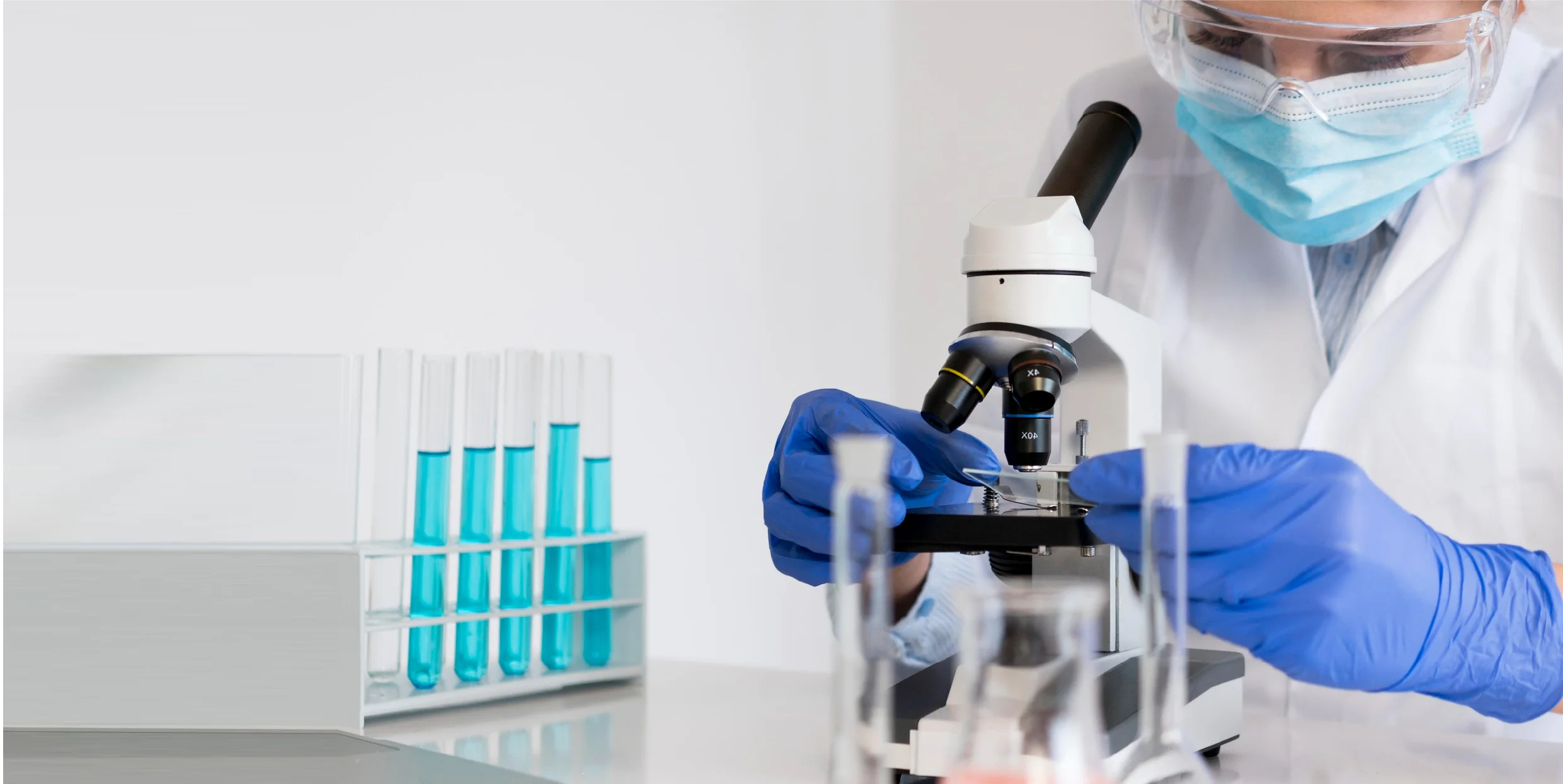
The Histopathology and Cytopathology department at BMCHRC specializes in the examination of tissue and cellular specimens to diagnose and characterize a wide range of diseases, including cancer. Our skilled pathologists utilize advanced techniques to analyze tissue sections and cytology samples, providing clinicians with essential information for treatment planning and prognostication.
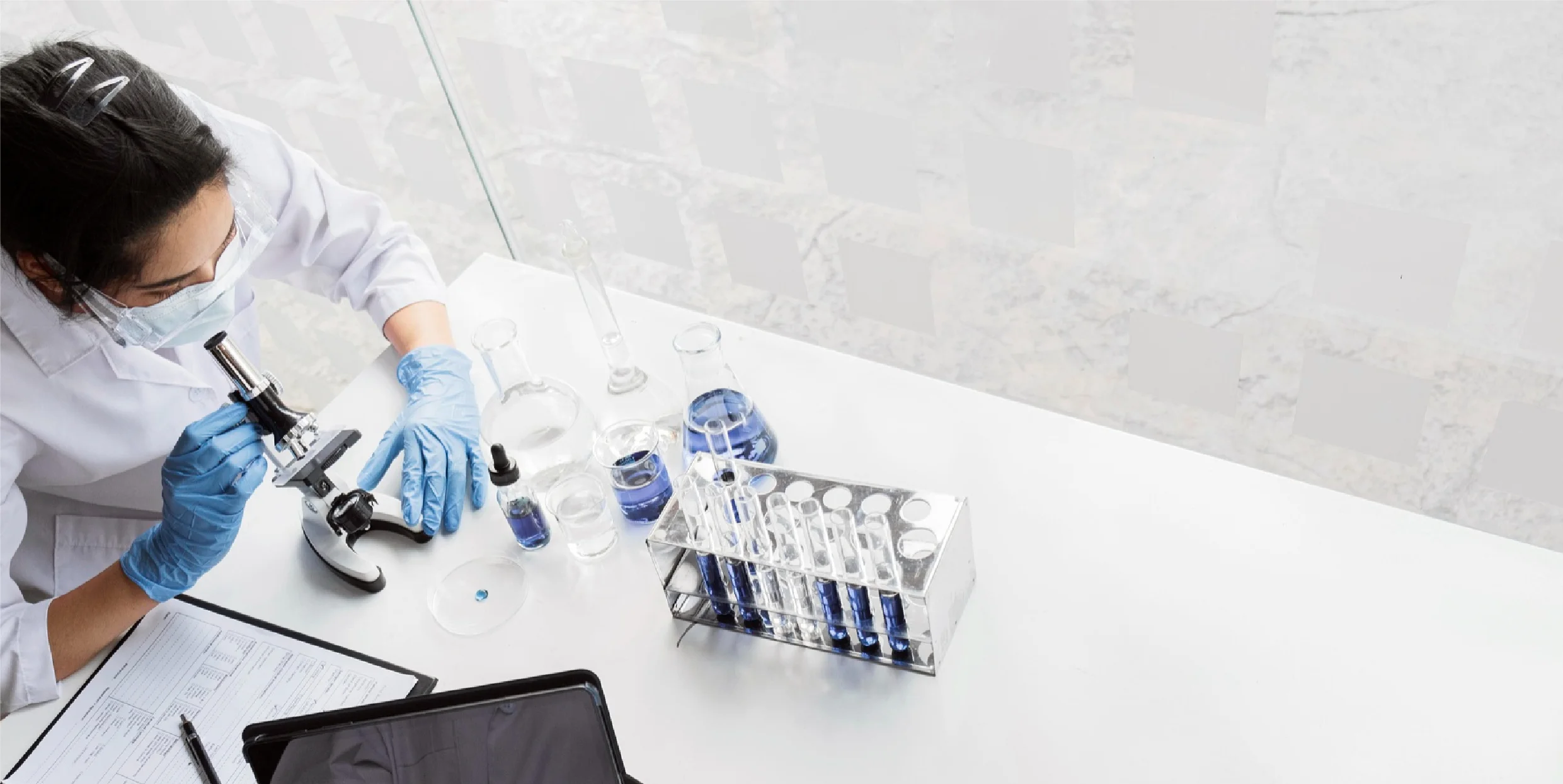
BMCHRC's Molecular Laboratory employs cutting-edge molecular techniques to analyze genetic material and identify disease markers at the molecular level. Our team of molecular biologists and technicians performs a variety of tests, including PCR, DNA sequencing, and gene expression profiling, to diagnose genetic disorders, infectious diseases, and cancer, facilitating personalized treatment approaches and advancing precision medicine.
Meet our esteemed team of medical professionals, each equipped with years of specialized expertise and unwavering dedication to patient care.
BMCHRC offers a comprehensive range of laboratory tests, including blood tests (complete blood count, blood chemistry panels), urine tests, stool tests, microbiological cultures, genetic testing, and specialized tests for various diseases and conditions. Our state-of-the-art laboratory is equipped with advanced technology and staffed by highly skilled professionals to ensure accurate and timely analysis.
The turnaround time for test results at BMCHRC varies depending on the specific test and the laboratory's workload. Typically, routine blood tests may take a few hours to a few days for results, while more specialized or complex tests may take longer. Our laboratory staff works diligently to provide prompt results without compromising accuracy.
Fasting requirements for blood tests vary depending on the specific test. Patients are advised to follow any instructions provided by their healthcare provider or the laboratory. Our staff at BMCHRC ensures clear communication regarding fasting requirements to ensure accurate test results.
While some laboratory tests at BMCHRC may be available on a walk-in basis, others may require appointments, especially for more specialized or time-sensitive tests. Patients are encouraged to check with the laboratory or their healthcare provider to determine if an appointment is necessary for their specific test.
Blood donation at BMCHRC involves voluntarily giving blood for use in transfusions or medical procedures, while blood transfusion is the process of receiving blood or blood products from a donor for medical treatment. Our Transfusion Medicine Service ensures the safe and timely provision of blood products to meet the needs of patients requiring transfusions.
Donation frequency at BMCHRC depends on local regulations and individual health factors. In most cases, donors can donate whole blood every 8 to 12 weeks, while donations of specific blood components may have different intervals. Our Blood Bank staff provides guidance to donors regarding eligibility and donation frequency.
Yes, blood from the Blood Bank at BMCHRC undergoes rigorous testing for infectious diseases and other safety measures to ensure it is safe for transfusion. Our Transfusion Medicine Service follows strict protocols for blood collection, testing, storage, and transportation to minimize the risk of contamination or transmission of infections.
BMCHRC's Blood Bank follows strict protocols for blood collection, testing, storage, and transportation to ensure blood safety. Donors are carefully screened for eligibility, and donated blood undergoes extensive testing before it is cleared for use in transfusions. Our priority is the safety and well-being of our patients.
In most cases, donors cannot specify individual recipients for their donated blood at BMCHRC. Blood is distributed based on medical need, compatibility, and priority determined by healthcare providers and Blood Bank staff to ensure fair and equitable distribution.
Age and weight requirements for blood donation at BMCHRC vary by location and blood donation organization. Generally, donors must be at least 17 years old (or older, depending on local regulations) and meet minimum weight requirements. Our Blood Bank staff provides guidance to potential donors regarding eligibility criteria.
Eligibility for blood donation at BMCHRC depends on various factors, including medical history, current health status, and specific medical conditions or medications. Some medical conditions or medications may affect eligibility, so it's important to check with the Blood Bank staff for guidance before donating.
Donated blood at BMCHRC undergoes processing to separate it into various components, such as red blood cells, plasma, and platelets. These blood components are then stored appropriately and used for transfusions to patients in need, depending on their medical requirements. Our Transfusion Medicine Service ensures proper handling and storage of donated blood to maintain its quality and safety.
Blood typing and compatibility testing are performed at BMCHRC to ensure that donated blood is compatible with the recipient's blood type and antibodies. This matching process helps prevent adverse reactions and ensures the safety and efficacy of the transfusion. Our Transfusion Medicine Service follows established protocols for blood matching to ensure patient safety.
Common blood products used for transfusion at BMCHRC include whole blood, packed red blood cells, platelets, and plasma. These blood products are used to treat various medical conditions, including anemia, bleeding disorders, and clotting disorders. Our Transfusion Medicine Service provides appropriate blood products based on patients' medical needs and transfusion requirements.
Blood donation appointments at BMCHRC can usually be scheduled through the Blood Bank, mobile blood drives, or online platforms managed by blood donation organizations. Transfusion requests are typically made by healthcare providers through hospital or clinic channels, following established protocols for blood product ordering and administration. Our Transfusion Medicine Service coordinates with healthcare providers to ensure timely and appropriate transfusion therapy for patients in need.
Request a callback from our healthcare specialist
